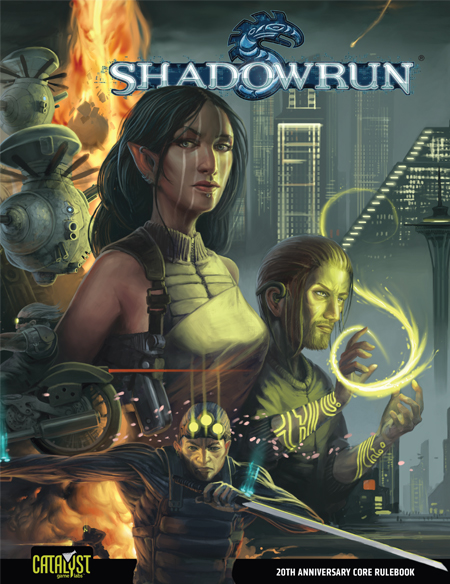The Old World of Darkness Returns!
Posted by RedBrick Limited on April 1, 2009
RedBrick Limited is happy to announce that they have successfully concluded negotiations with the White Wolf Gaming Studio for a license to publish roleplaying products for the Old World of Darkness (also known as oWoD among the fans) formerly published between 1991 and 2003. The revival of this line will bring back updated editions of Vampire: The Masquerade, Werewolf: The Apocalypse, Mage: The Ascension, Wraith: The Oblivion, and Hunter: The Reckoning. The Old World of Darkness resembles the contemporary world, but darker, more devious, more conspiratorial. Humanity is losing hope as it is secretly preyed upon and controlled by supernatural creatures such as vampires, werewolves and wraiths. Prepare for evenings of atmosphere and gloom, and revisit the Old World of Darkness from it's beginnings through the Time of Judgement!
James Flowers, RedBrick Company Director, said "At RedBrick we work with game properties that we feel passionate about. The Old World of Darkness is one of these properties and, while we liked the fact that it was destroyed, many fans still long for the good old times. We look forward to bring those back. White Wolf has created a series of exciting games, but removing them also removed a lot of unexplored potential. RedBrick will continue to work closely with White Wolf and Mark Reign•Hagen to ensure continuity with the original vision for the Old World of Darkness."
Mark Reign•Hagen, who ended his absence and re-joined White Wolf for this venture, said "We are excited that the Old World of Darkness will be revisited and explored in more detail. Fans of the game have been asking for a revitalization of the old line, and RedBrick's community-based approach means that not only will their patience be rewarded, but that the community will actually have a voice in the direction the new line takes."
James Flowers added, "At present, we have a lot to do and our immediate focus is making the out-of-print books available in electronic format as eBooks, as well as getting the rulebooks back into print. We will announce more details on what we have planned for the future of the Old World of Darkness in due course."
More information and official forums can be found at RedBrick's old World of Darkness web site.
The Old World of Darkness is a Trademark and Copyright of White Wolf Gaming Studio. All Rights Reserved. RedBrick Limited are headquartered in New Zealand, and also publish the popular Earthdawn and Fading Suns roleplaying games under license from FASA Corporation and Holistic Design Inc., respectively. RedBrick's company web site is
http://www.redbrick-limited.com. White Wolf Gaming Studio are headquartered in Stone Mountain, USA. White Wolf Gaming Studio's company web site is
http://www.white-wolf.com.
...




 Zitieren
Zitieren





 nton:
nton:





